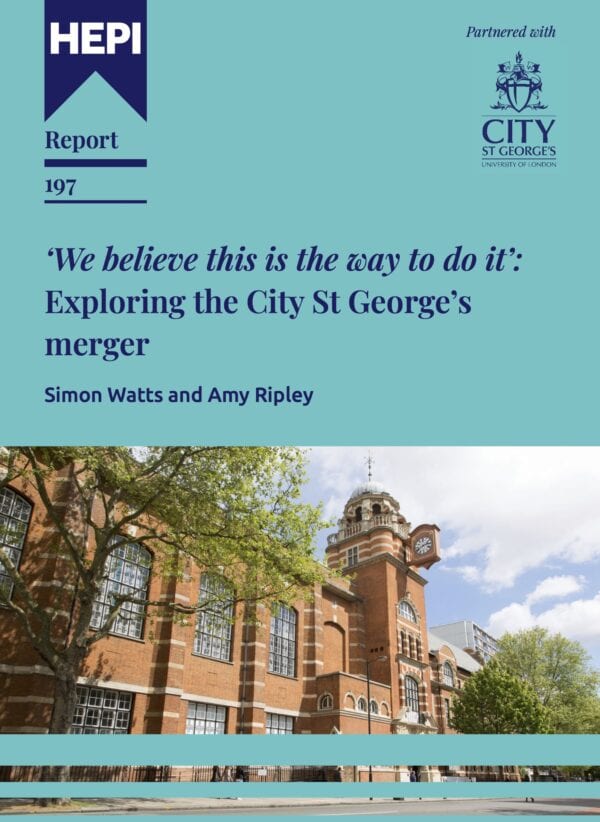From talk to action: collaboration and shared services in higher education
This guest blog was kindly authored by Heidi Fraser-Krauss, Chief Executive Officer at Jisc.
The power of collaboration and shared services is now widely recognised in the higher education sector as an effective way for institutions to continue delivering outstanding student experiences, world-class teaching, and research and innovation, all against a backdrop of financial pressures. Jisc has played a leading role in driving these conversations, in partnership with UUK, KPMG and university leaders. However, it is now time to put our words into action and make collaboration the norm.
Achieving better outcomes collectively
Recent sector-wide initiatives, including the Transformation and Efficiency Taskforce commissioned by Universities UK, have explored opportunities for efficiency and innovation through shared services. Jisc contributed to practical strands of this work, focusing on collaboration utilising digital, data and technology. A UK-wide questionnaire inviting insights from the sector on which actions should be taken was distributed. More than 30 ideas were submitted, and three were explored in depth.
Shared services is the first of these three. The premise is simple: through sharing, collaboration and working together (whether by pooling knowledge, sharing risk or combining scarce skills) universities can achieve better outcomes together than they could alone.
Tools for collaboration already exist – so let’s put them to work
The sector already has examples of institutional collaboration – demonstrating the benefits of collective effort. However, not all services lend themselves well to being shared. For example, ambitious but complex projects such as a shared student record system for the sector is not an ideal place to begin.
We must also be careful not to assume that shared services are automatically more efficient simply by virtue of their being shared. Despite this, there are many that can be. Good examples of collaboration, involving sharing back-office functions (for example a joint out-of-hours IT service, or forming a consortium to strengthen research bids) already exist. In fact, both of these examples were highlighted by the then Secretary of State for Science, Innovation and Technology, Peter Kyle during his speech at the recent Universities UK conference.
One of the key findings of the report, was that, although there are many shared services across the sector already, very few are used by large numbers of institutions. Many have been running for years and could achieve far greater impact if more institutions engaged with them. The lesson is clear: make better use of what already exists. An example of this is UMAL, the non-profit mutual insurer for universities and colleges across the UK.
Plenty of questions still to be answered
As collaboration gains momentum, important questions remain. Can processes be standardised? Can AI-enabled tools be developed jointly to avoid duplication, and could collaboration extend to industry and public sector partnerships, such as health? Examples like Cardiff’s Mental Health University Liaison Service and the Greater Manchester Universities Mental Health Service – both university–NHS collaborations – could be replicated elsewhere. Science Parks across the UK also show how universities and industry can work successfully together.
These are all important questions, and although we may not yet have all the answers, we shouldn’t let this get in the way of change.
What should happen now?
There are a number of practical steps we can take together in the very short term to make shared services a genuine force for positive change across higher education. For example, the creation of a central catalogue of existing shared services would raise awareness and uptake.
The sector must adopt a ‘shared services first’ mindset. Leaders should consider whether proven, collaborative solutions are already available – and use them. Where duplication exists, regional mergers or the strategic transfer of services into national bodies could strengthen sustainability and reduce wasted effort.
Government has an important role to play. Adopting the British Universities Finance Directors Group (BUFDG) proposa[CA1] ls for improving VAT treatment of cost-sharing groups could unlock further progress.
For their part, institutions sharing data on spend and contract reviews would help to provide an evidence base for smarter sector-wide decisions. In some cases, institutions should also consider mergers or broader consolidation of services across the sector, where combining resources offers long-term efficiencies and sustainability.
Supporting universities to collaborate
Collaboration isn’t idealism – it’s a rational response to cost pressures, and the means to make it happen is already in our hands. We can adopt a ‘shared services first’ approach – it just needs a firm commitment from institutional leaderships to make it happen.
At Jisc, our role remains to convene senior stakeholders, define shared negotiation objectives, and support universities to move from strategy to implementation – after all, everyone knows that actions speak louder than words.
Recommendations
To support a shift towards collaborative models, here are practical recommendations for institutions, sector networks, shared service operators and government.
Individual Institutions
- Adopt a ‘shared services first’ mindset for new requirements
- Evaluate existing shared services before creating an in-house service or procuring a commercial solution, prioritising long term value over short term cost savings
- Collaborate with neighbouring institutions to replicate successful models
- Explore regional opportunities to address shared needs and challenges where shared models have proved successful
- Reassess internal operations and consider where there are opportunities to share services
- Evaluate any area that could benefit from a shared service, except in student recruitment
Sector Networks and Membership Organisations
(e.g. Universities UK, BUFDG, UCISA, regional consortia)
- Increase awareness of existing shared services through a central shared service catalogue
- Create and promote a catalogue of shared services structured for direct contract awards or competitive tendering.
- Encourage shared services to use ‘.ac.uk’ domains for visibility, where they are eligible to do so.
- Convene groups of institutions, to consider potential joint commitments to subscribe to existing shared services, increasing their scale
- Use sector networks to bring universities together for collective commitments to shared services, leveraging procurement rules that permit direct contracting with sector-owned organisations (known as the Teckal exemption) where appropriate.
Shared Service Operators
(e.g. UMAL, sector-owned IT or procurement services)
- Shared service operators should meet regularly to increase coordination
- Establish regular meetings between sector-owned shared services to improve collaboration and avoid duplication.
- Consider forming a UK Shared Services Council to unify efforts, similar to UK Universities Procurement Consortia (UKUPC).
- Regional shared services should consider merging, where online working has removed the original advantage of a regional operation
- Non-profit operators in the same niche should merge to avoid unnecessary competition and improve service delivery. Merging can create more efficient, focused providers.
- Individual universities operating shared services should consider transferring ownership of their shared service to other organisations, but only when natural opportunities arise
- Universities should transfer shared services to sector agencies when it aligns naturally, allowing focus on core missions.
Government
- Government should implement one of BUFDG’s proposed improvements to VAT Cost Sharing Groups. This would create new opportunities for shared services in areas currently considered unworkable due to an additional 20% VAT charge.







Comments
Add comment